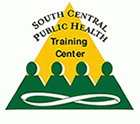
Cultural Competency for Community Management of Special Needs Patients in Disaster
Overview
Course Description:
Disaster imposes adverse consequences upon a community and its people. Disasters can injure the physical infrastructure and disrupt social integration and the capability to provide basic elements of the population’s fundamental needs.
Additional and exceptional vulnerabilities may be revealed by crisis, especially among community members with special needs. These include members of sub-populations who have not yet been entirely integrated into community life and plans or whose lifestyle and customs place them at additional peril.
Acquiring awareness, skills and proficiency in cultural competency has become a critical element in enabling people, governments and institutions to deal with crises in a world with less homogeneity but greater diversity. The talents and insight of cultural competency can transform vulnerabilities in societal self-awareness and coordination into strengths of capability for planning and intervention.
Target Audience
Academic Faculty/Staff, Federal Government Employees, State Government Employees, Local Government Employees, Non-Government Employees and Students
Learning Objectives
- Describe current risks and consequences in community disaster management in the context of the need for more expansive and competent provider and governmental skills in engaging all population components
- Identify and analyze current shortfalls in Hispanic and Vietnamese community preventive medicine practice, primary care and public health interventions with specific recommendations for improved doctrine and practice
- Explain existing and evolving challenges in disaster planning and preparation facing modern multi ethnic communities
Faculty
Instructor:

Joseph Contiguglia, MD, MPH & TM, MBA
Accreditation
Available Credit
- 4.00 Participation/CETulane Professional and Continuing Education (PaCE) awards 4.00 hour(s) of credit for completing Cultural Competency for Community Management of Special Needs Patients in Disaster
Register/Take course
Price
Required Hardware/software
System Settings
This course is designed to work most effectively if your computer and internet connection meet certain minimal requirements. This course can be accessed using a Windows 10 PC or a Mac with High Sierra1, Mojave, or Catalina. Pop-up blockers should be disabled when viewing the course. Internet Explorer 11 (for Windows 10), or the current version of Google Chrome, Mozilla Firefox, or Apple Safari (for Windows 10 and or Mac) is required. Many of our courses require Java and JavaScript enabled.
Links to External Websites
Links to websites outside this course will open in a new window or tab. Some browsers may minimize the course window. If this occurs, maximize the course window to return to the course.
Adobe Acrobat Reader (for desktops and laptops)
Adobe Acrobat Reader is required to access some documents in this course. If you need to download a free copy of Acrobat Reader, click here.
Internet Connection Speed
A minimum download speed of 1.5 Mbps is recommended for an optimal experience, which is commonly the speed associated with a basic DSL or a cellular/satellite connection. A faster connection, such as cable or fiber service, with further enhance your online experience. A Wi-Fi connection is generally acceptable, but it is dependent upon one of the two services mentioned above. You can check your internet connection speed at http://www.speedtest.net/.

 Facebook
Facebook Twitter
Twitter LinkedIn
LinkedIn Forward
Forward